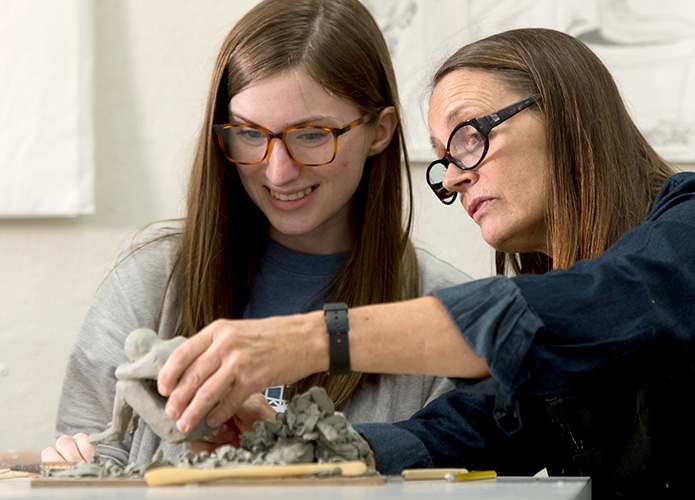Experiential Learning and Study Abroad in Ethics, Culture, and Society
Viterbo’s ethics, culture, and society program is led by senior faculty with a strong and diverse record of research, publications, grants, and study abroad experience.
Professor Matthew Bersagel-Braley was a contributing author to the Wabash Center’s project on Teaching for Social Justice and Civic Engagement. Professor Bersagel-Braley also leads the study abroad trip to South Africa.
Other faculty involved in study abroad opportunities include Jesus Jambrina, who co-led a trip to Spain and Portugal, and Keith Knutson, who has been involved with student exchanges in Luxembourg.
Our ethics, culture, and society program has also developed a relationship with the Washington Community Scholars’ Center in Washington, D.C., through a partnership with Eastern Mennonite University.
Viterbo is piloting a work-based learning opportunity to put students in touch with organizations doing work that might coincide with their studies and interests. For example, ethics, culture, and society student David Novak is working with Encampment for Citizenship, a nonprofit based in California. David is interested in restorative justice and has been working with the organization on related themes, as well as researching potential funding sources that may be present in the Midwest.
Through classes like VUSM 300: Philosophy for Children, ECAS students have the opportunity to develop critical thinking and communication skills while fostering respectful dialogue on important social issues. Guided by faculty member Jason Howard, students have led thoughtful discussions on complex topics like gun control, social media, and cloning at local schools.
I knew I wanted to stay at Viterbo because I love it here. I really like the small campus, the friends and connections I've made, and how everyone is made to feel welcome. So, I looked for a major that best fit my career path."
—Stephanie Sesvold ’22, ECAS major
Ethics, Culture, and Society Interdisciplinary Studies Course Highlights


